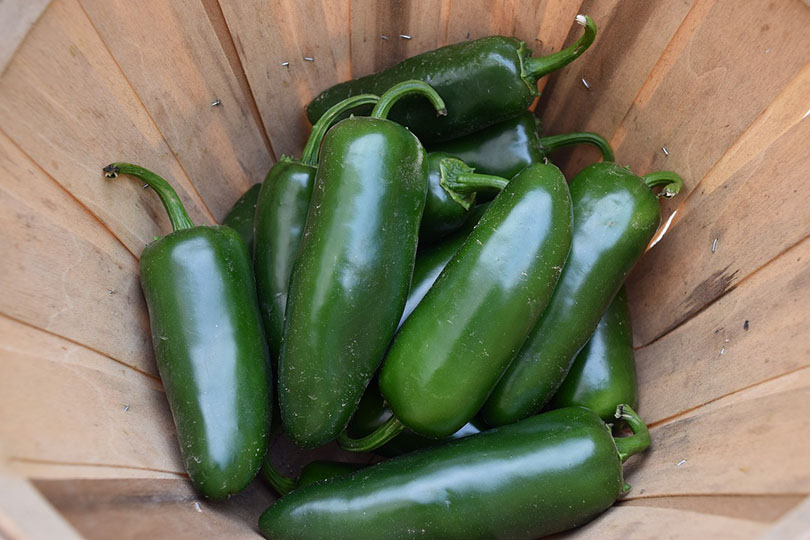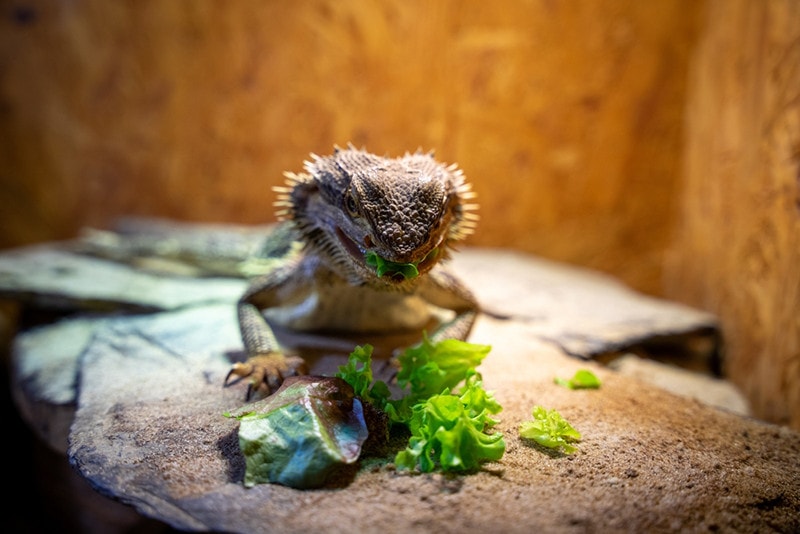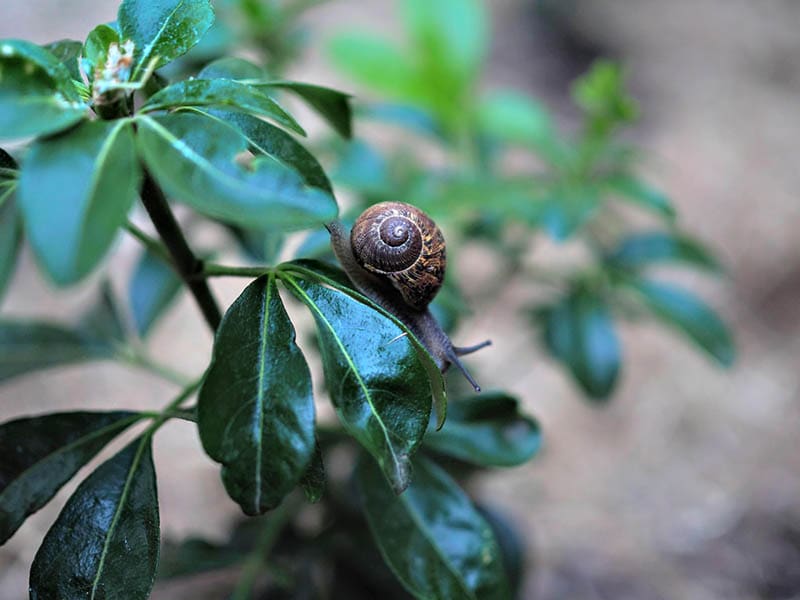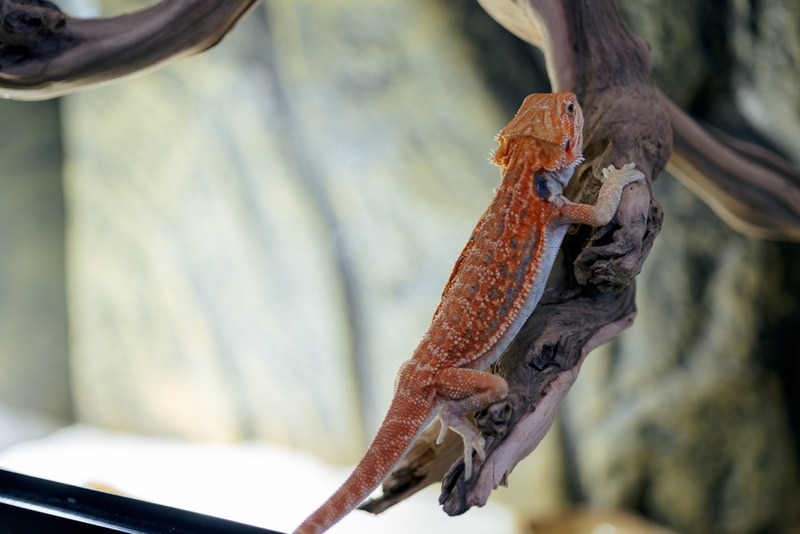Can Bearded Dragons Eat Jalapenos? Vet-Reviewed Nutrition Facts & FAQ
By Kit Copson
Updated on

Click to Skip Ahead
The humble Jalapeno is a prominent ingredient in Mexican food—one of the world’s most beloved cuisines—and contains several vitamins and minerals. Humans may enjoy the spicy taste, but is it safe for bearded dragons?
The general consensus is that bearded dragons can eat small amounts of jalapenos now and again, but too many can cause digestive problems, so proceed with caution. Read on to find out more.
Are Jalapenos Safe for Bearded Dragons?
If you decide to feed jalapenos to your bearded dragon and they enjoy them, they should be cut into little pieces and fed only in small amounts occasionally. The leaves and seeds should be removed. Jalapenos should not be fed regularly or in large amounts because they contain capsaicin, the compound that gives them that famous spicy kick.
Basically, if your bearded dragon eats too many jalapenos, it could upset their stomach, resulting in vomiting, diarrhea, and pain. For this reason, you might decide to leave jalapenos off your beardie’s menu altogether and opt for non-spicy peppers instead, like bell peppers, to be on the safe side. There are a number of other vegetables your beardie can enjoy, too.
What Do Bearded Dragons Eat?
Bearded dragons are omnivorous, which means they can eat foods from both plant/vegetable and animal sources. The plant-to-live food ratio, however, changes as a bearded dragon gets older, so it should be adapted to their age.
As adults, they typically eat around 40% animal matter and 60% plant matter, but as babies and juveniles, they eat a more carnivorous diet. According to RSPCA guidelines, younger bearded dragons eat a diet consisting of around 65% live food and 35% plant matter, but these estimations seem to vary somewhat among experts, so it’s advisable to work out the best ratio for your bearded dragon’s age with your vet.
It’s also wise to speak to your vet about phosphorus-free calcium supplements for your beardie, as these are commonly added lightly to bearded dragons’ diets.
Furthermore, it’s not a good idea to feed the exact same selection of foods daily—variety is hugely important for bearded dragons. Rotating foods regularly allows your beardie to reap nutritional benefits from several sources while experiencing different tastes. Fresh water should always be available for your beardie, and a dish should be chosen that they won’t find easy to knock over.
Here are some safe food choices for bearded dragons:

Live Foods
Plants & Vegetables
- Bell peppers
- Clover
- Chicory
- Green beans
- Escarole
- Collard greens
- Bok choy
- Alfalfa hay
- Watercress
- Turnip greens
- Dandelion
- Rocket
- Plantain leaves
- Mustard greens
- Green/red cabbage

Feed in Moderation/Sparingly
- Sweet potato
- Peas
- Okra
- Squash
- Carrots
- Parsnips
- Corn
- Cactus
Your bearded dragon might also appreciate a small amount of fruit now and again as a treat. Safe options include figs, dates, apricots, strawberries, apples, pears, and raspberries.
Final Thoughts
Jalapenos don’t appear on veterinary “recommended vegetables” lists, but it seems they can be offered sparingly and as an occasional treat if your bearded dragon seems to enjoy them. Just be mindful that the capsaicin in jalapenos can irritate the stomach, so exercise caution. If you’re unsure whether jalapenos would be suitable for your beardie, please speak to your vet.
See also:
- Can Bearded Dragons Eat Mint Leaves? Vet-Reviewed Nutrition Facts & FAQ
- Can Bearded Dragons Eat Cheese? Vet-Reviewed Nutrition Facts & FAQ
Featured Image Credit: RamsayMedia, Pixabay












